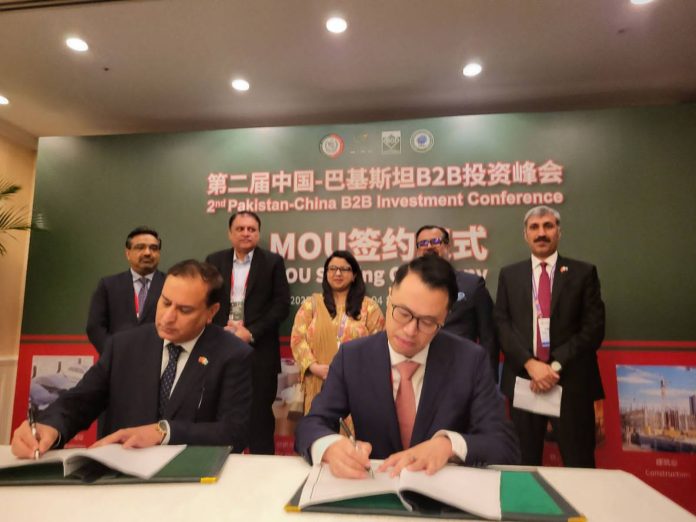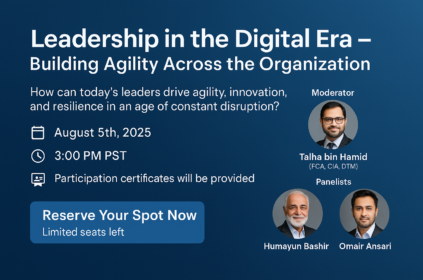The digital landscape is evolving rapidly, and Pakistan is positioning itself as a key player in the global tech arena through strategic partnerships with China. At the second Pakistan-China B2B Conference held in China on September 7, 2025, nine Memorandum of Understanding (MoUs) were signed to deepen cooperation in information technology. These agreements, particularly those involving Huawei Technologies, mark a significant milestone in strengthening Pakistan’s digital infrastructure, fostering innovation, and empowering its youth with cutting-edge skills.
This article dives into the details of these transformative agreements, with a special focus on Huawei’s contributions to fiberization, AI and cybersecurity training, and the development of Pakistan’s first AI-ready sovereign cloud data center. By exploring these initiatives, we’ll uncover how Pakistan is leveraging its partnership with China to build a robust digital ecosystem.
Huawei’s Strategic Partnerships in Pakistan
Huawei Technologies, a global leader in ICT solutions, has emerged as a cornerstone of the Pakistan-China IT collaboration. Three standout MoUs signed at the conference highlight Huawei’s commitment to modernizing Pakistan’s digital infrastructure and fostering technological innovation. Let’s break down these agreements and their implications.
Huawei and NTC Pakistan: Accelerating Fiberization
The first MoU, signed between Huawei Technologies and the National Telecommunication Corporation (NTC) of Pakistan, focuses on accelerating fiberization and enhancing secure government connectivity infrastructure. Fiberization, the process of deploying high-speed fiber optic networks, is critical for enabling seamless, high-bandwidth communication across public sector institutions.
Key Benefits of the Huawei-NTC Partnership:
- Enhanced Connectivity: Fiber optic networks will provide faster, more reliable internet access for government institutions, improving efficiency and service delivery.
- Secure Infrastructure: The partnership emphasizes secure connectivity, safeguarding sensitive government data against cyber threats.
- Digital Modernization: By upgrading Pakistan’s digital backbone, this initiative supports the country’s ambition to become a regional tech hub.
This collaboration is set to roll out across 15 universities in partnership with the Higher Education Commission (HEC), ensuring that academic institutions benefit from high-speed connectivity. This move not only strengthens Pakistan’s public sector but also lays the groundwork for a digitally empowered education system.
Related Reading: Learn more about the importance of fiber optic networks in our article on The Future of High-Speed Internet in Pakistan.
Huawei and NAVTTC: Empowering Youth with AI and Cybersecurity Skills
The second MoU, signed with the National Vocational and Technical Training Commission (NAVTTC), aims to equip 1,500 Pakistani youth with globally recognized certifications in Cloud Computing, Artificial Intelligence (AI), and 5G Technologies. This initiative aligns with the Prime Minister’s “Skills for Productive Employment” vision, which seeks to prepare Pakistan’s workforce for the demands of the digital economy.
Highlights of the Huawei-NAVTTC Program:
- Comprehensive Training: Participants will gain expertise in cutting-edge technologies, including AI, cloud computing, and 5G, which are driving global innovation.
- Global Certifications: The program offers certifications recognized worldwide, enhancing employability in international markets.
- Youth Empowerment: By targeting young professionals, this initiative fosters economic growth and reduces unemployment through skill development.
- Support for Digital Economy: Skilled professionals will contribute to Pakistan’s growing tech sector, driving innovation and entrepreneurship.
This training program is a game-changer for Pakistan’s youth, providing them with the tools to compete in a technology-driven world. By investing in human capital, Huawei is helping Pakistan build a workforce capable of leading the country’s digital transformation.
External Link: For more insights on global AI trends, check out Gartner’s 2025 Technology Trends Report.
Huawei and Sky4,7: Building Pakistan’s Sovereign Cloud
The third MoU, signed with Sky4,7, marks a groundbreaking step in establishing Pakistan’s first AI-ready sovereign cloud data center. This partnership aligns with Pakistan’s Cloud First Policy, which prioritizes secure, scalable, and locally hosted cloud solutions to ensure data residency and digital sovereignty.
Why the Sovereign Cloud Matters:
- Data Security: A sovereign cloud ensures that sensitive data remains within Pakistan, reducing reliance on foreign providers and mitigating security risks.
- Scalable AI Deployments: The AI-ready infrastructure supports the development and deployment of advanced AI applications, fostering innovation.
- Compliance with Regulations: By adhering to Pakistan’s Cloud First Policy, the data center ensures compliance with national data protection standards.
- Economic Growth: A robust cloud infrastructure attracts investment and supports the growth of Pakistan’s digital economy.
This collaboration positions Pakistan as a leader in secure cloud computing in the region, enabling businesses and government institutions to leverage advanced technologies while maintaining control over their data.
Other Key MoUs in the Pakistan-China IT Collaboration
In addition to Huawei’s contributions, the Pakistan-China B2B Conference saw several other significant agreements that further strengthen bilateral ties in the tech sector. These include:
- Alibaba International Digital Commerce: A partnership to boost e-commerce opportunities, enabling Pakistani businesses to access global markets through Alibaba’s platform.
- China Submarine Cable Construction Company Limited (CSCC): An agreement to enhance Pakistan’s underwater cable infrastructure, improving international connectivity.
- GuoDong Group: A collaboration to promote investment in Pakistan’s IT sector, fostering innovation and entrepreneurship.
- Pakistan Software Export Board (PSEB) and Shanghai Lingang International Data Industry Institute (SHLID): A partnership to drive research and development in data-driven technologies.
These agreements collectively unlock new avenues for innovation, investment, and human capital development, positioning Pakistan as a key player in the global tech landscape.
The Broader Impact of Pakistan-China IT Collaboration
The nine MoUs signed at the Pakistan-China B2B Conference represent a monumental step forward in the bilateral relationship between Pakistan and China. By focusing on critical areas such as fiberization, AI training, and cloud infrastructure, these agreements address the core components of a modern digital ecosystem.
Economic Benefits
The partnerships are expected to attract significant investment in Pakistan’s IT sector, creating jobs and boosting economic growth. The emphasis on youth training and skill development will empower the next generation of tech professionals, reducing unemployment and driving innovation.
Technological Advancements
With Huawei’s expertise in 5G, AI, and cloud computing, Pakistan is poised to adopt cutting-edge technologies that will enhance its digital infrastructure. The sovereign cloud data center, in particular, will enable businesses to leverage AI and big data analytics, fostering a culture of innovation.
Global Competitiveness
By aligning with global tech leaders like Huawei and Alibaba, Pakistan is strengthening its position in the international tech market. The certifications offered through the Huawei-NAVTTC program will equip Pakistani professionals with skills that are in high demand worldwide, enhancing the country’s global competitiveness.
Digital Sovereignty
The focus on secure, locally hosted cloud solutions ensures that Pakistan retains control over its data, a critical factor in today’s data-driven world. This move not only enhances security but also builds trust among businesses and consumers.
Challenges and Opportunities
While the Pakistan-China IT collaboration presents immense opportunities, it also comes with challenges that must be addressed to ensure success.
Challenges
- Infrastructure Gaps: Despite progress, Pakistan’s digital infrastructure still faces gaps in rural areas, which could hinder the rollout of fiberization and cloud services.
- Skill Shortages: The rapid adoption of advanced technologies requires a skilled workforce, necessitating sustained investment in education and training.
- Regulatory Hurdles: Ensuring compliance with data protection and cybersecurity regulations will be critical to the success of the sovereign cloud initiative.
Opportunities
- Youth Empowerment: With a large, young population, Pakistan has the potential to become a hub for tech talent, particularly in AI and cloud computing.
- Regional Leadership: By leveraging partnerships with China, Pakistan can position itself as a leader in digital innovation in South Asia.
- Economic Diversification: The growth of the IT sector will reduce Pakistan’s reliance on traditional industries, fostering a more resilient economy.
Conclusion: A Bright Digital Future for Pakistan
The Pakistan-China IT collaboration, spearheaded by Huawei’s transformative initiatives, is paving the way for a digitally empowered Pakistan. From accelerating fiberization to training the next generation of tech professionals and building a sovereign cloud infrastructure, these partnerships are laying the foundation for a robust digital ecosystem.
As Pakistan continues to strengthen its ties with China, the opportunities for innovation, investment, and economic growth are boundless. By addressing challenges and capitalizing on its young, dynamic workforce, Pakistan is well-positioned to become a regional leader in the global tech landscape.















